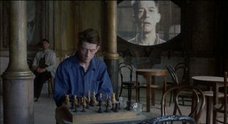
In declaring a "state of emergency"—in essence, a personal dictatorship—weak Pakistani strong man Pervez Musharraf has not made war on the Islamists who are poised to take over the country. Instead, he has made war on Pakistan's liberals, particularly its politically active lawyers, who have been protesting for civilian government and the rule of law.
The New York Times article linked to below describes the lawyers' protests and the government's crackdown, as well as Benazir Bhutto's potential role as the leader of a liberal protest movement in Pakistan—if she has the nerve to attempt it. Another leader of the movement is suspended Supreme Court Chief Justice Iftikhar Mohammed Chaudhry, who is calling for an uprising against Musharraf.
"Pakistan Attempts to Crush Protests by Lawyers," Jane Perlez and David Rohde, New York Times, November 6 Angry protests by thousands of lawyers in Lahore and other cities on Monday demonstrated the first organized resistance to the emergency rule imposed by the Pakistani president, Gen. Pervez Musharraf….
At one point, lawyers and police officers clashed in a pitched battle, with lawyers standing on the roof of the High Court throwing stones at the police below, and the police hurling them back. Some of the lawyers were bleeding from the head, and some passed out in clouds of tear gas….
Ms. Bhutto, a former prime minister and the leader of the country's biggest secular political party…insisted that a rally planned by her party would go ahead on Friday in Rawalpindi. It would be staged as a protest, she said in a telephone interview from Karachi.
"We decided this would be a protest meeting where we would protest the imposition of military rule," she said. "This protest movement will continue until the Constitution is restored."…
[M]ore than 100 lawyers demonstrated outside Islamabad's main court complex on Monday. The lawyers in black suits and ties shouted "Musharraf dog" and "A baton and a bullet will not do."…
Feisal Naqvi, a Lahore lawyer, and other lawyers said they believed that the battle against the government could not be won on the streets. Rather, they said, the fight should focus on undermining the newly constituted courts from inside the courthouses.
One goal of the lawyers, Mr. Naqvi said, is to paralyze the new courts. "The fundamental point is not to allow the Supreme Court and the High Courts to operate," he said. A monitoring system was being considered under which lawyers would patrol courts and urge their colleagues not to appear before the new judges. "There should be no acceptance of the new judges," he said.



















